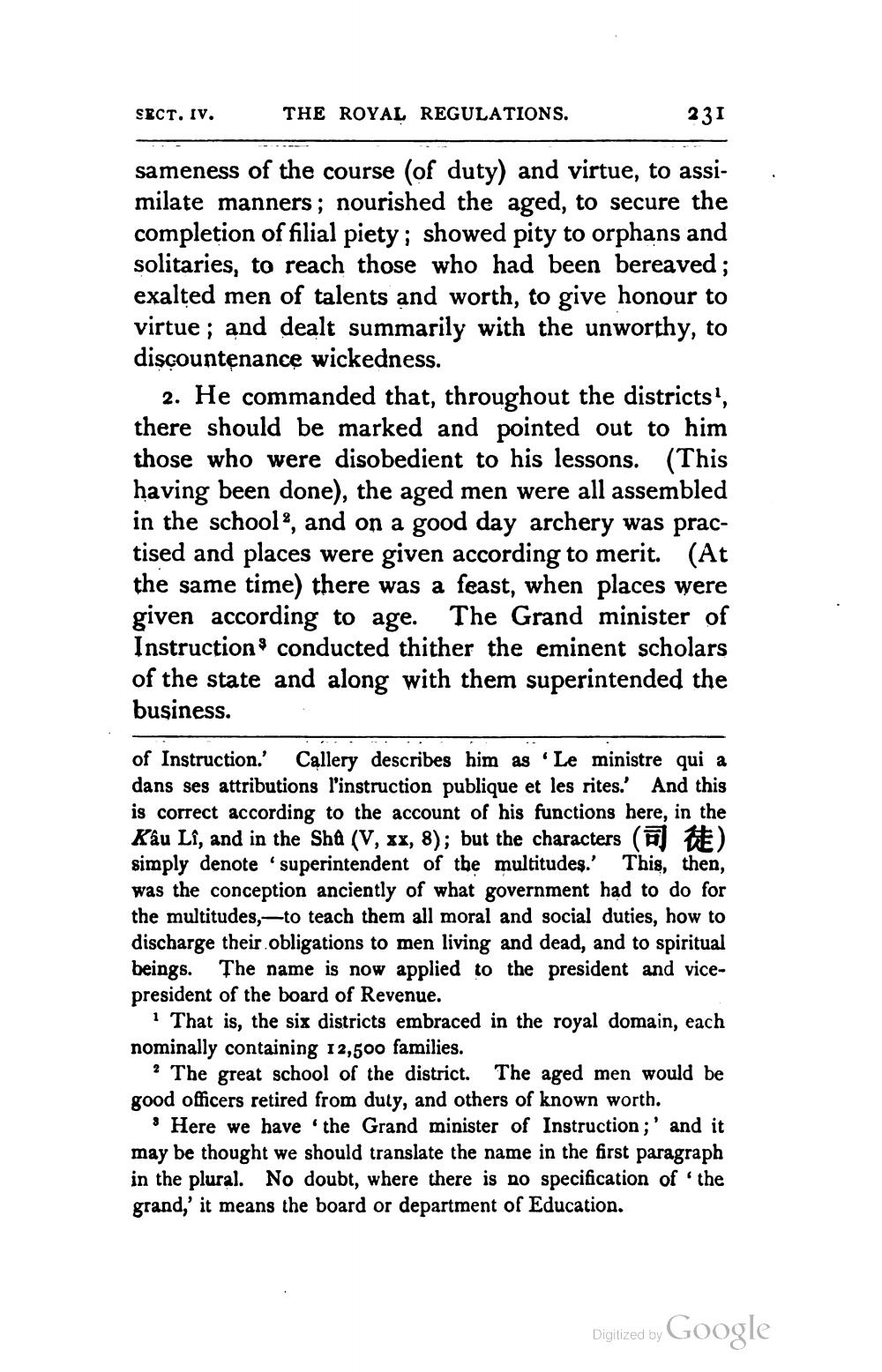________________
SECT. IV.
THE ROYAL REGULATIONS.
231
sameness of the course (of duty) and virtue, to assimilate manners; nourished the aged, to secure the completion of filial piety; showed pity to orphans and solitaries, to reach those who had been bereaved; exalted men of talents and worth, to give honour to virtue; and dealt summarily with the unworthy, to discountenance wickedness.
2. He commanded that, throughout the districts, there should be marked and pointed out to him those who were disobedient to his lessons. (This having been done), the aged men were all assembled in the schools, and on a good day archery was practised and places were given according to merit. (At the same time) there was a feast, when places were given according to age. The Grand minister of Instruction conducted thither the eminent scholars of the state and along with them superintended the business.
of Instruction. Callery describes him as Le ministre qui a dans ses attributions l'instruction publique et les rites.' And this is correct according to the account of his functions here, in the Kau Li, and in the Sha (V, xx, 8); but the characters ( 1 ) simply denote 'superintendent of the multitudes.' This, then, was the conception anciently of what government had to do for the multitudes,-to teach them all moral and social duties, how to discharge their obligations to men living and dead, and to spiritual beings. The name is now applied to the president and vicepresident of the board of Revenue.
That is, the six districts embraced in the royal domain, each nominally containing 12,500 families.
? The great school of the district. The aged men would be good officers retired from duty, and others of known worth.
• Here we have the Grand minister of Instruction;' and it may be thought we should translate the name in the first paragraph in the plural. No doubt, where there is no specification of the grand, it means the board or department of Education.
Digitized by Google




